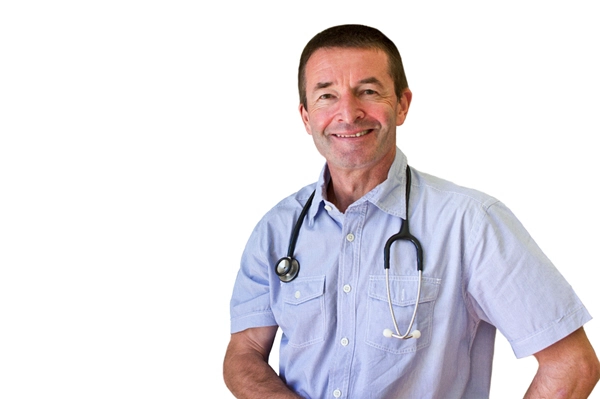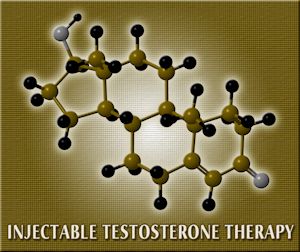Definition
Hypogonadism occurs when the body's sex glands produce little or no hormones. In men, these glands (gonads) are the testes. In women, these glands are the ovaries.
Gonadal deficiency
The cause of hypogonadism can be primary or central. In primary hypogonadism, the ovaries or testes themselves do not function properly. Causes of primary hypogonadism include:
The most common genetic disorders that cause primary hypogonadism are Turner syndrome (in women) and Klinefelter syndrome (in men).
If you already have other autoimmune disorders you may be at higher risk of autoimmune damage to the gonads. These can include disorders that affect the liver and adrenal and thyroid glands as well as type 1 diabetes.
In central hypogonadism, the centers in the brain that control the gonads (hypothalamus and pituitary) do not function properly. Causes of central hypogonadism include:
A genetic cause of central hypogonadism is Kallmann syndrome. Many people with this condition also have a decreased sense of smell.
Girls who have hypogonadism will not begin menstruating. Hypogonadism can affect their breast development and height. If hypogonadism occurs after puberty, symptoms in women include:
In boys, hypogonadism affects muscle, beard, genital and voice development. It also leads to growth problems. In men the symptoms are:
If a pituitary or other brain tumor is present (central hypogonadism), there may be:
The most common tumors affecting the pituitary are craniopharyngioma in children and prolactinoma adenomas in adults.
You may need to have tests to check:
Other tests may include:
Sometimes imaging tests are needed, such as a sonogram of the ovaries. If pituitary disease is suspected, an MRI or CT scan of the brain may be done.
You may need to take hormone-based medicines. Estrogen and progesterone are used for girls and women. The medicines comes come in the form of a pill or skin patch. Testosterone is used for boys and men. The medicine can be given as a skin patch, skin gel, a solution applied to the armpit, a patch applied to the upper gum, or by injection.
For women who have not had their uterus removed, combination treatment with estrogen and progesterone may decrease the chance of developing endometrial cancer. Women with hypogonadism who have low sex drive may also be prescribed low-dose testosterone.
In some women, injections or pills can be used to stimulate ovulation. Injections of pituitary hormone may be used to help men produce sperm. Other people may need surgery and radiation therapy.
Many forms of hypogonadism are treatable and have a good outlook.
In women, hypogonadism may cause infertility. Menopause is a form of hypogonadism that occurs naturally and can cause hot flashes, vaginal dryness, and irritability as a woman's estrogen levels fall. The risk of osteoporosis and heart disease increase after menopause.
Some women with hypogonadism take estrogen therapy, especially those who have early menopause. But long-term used of hormone therapy can increase the risk of breast cancer, blood clots and heart disease. Women should talk with their health care provider about the risks and benefits of hormone replacement therapy with your doctor.
In men, hypogonadism results in loss of sex drive and may cause:
Men normally have lower testosterone as they age. However, the decline in hormone levels is not as dramatic as it is in women.
Talk to your health care provider if you notice:
Both men and women should call their provider if they have headaches or vision problems.
Maintain normal body weight and healthy eating habits may help in some cases. Other causes may not be preventable.
Ali O, Donohoue PA. Hypofunction of the testes. In: Kliegman RM, Stanton BF, St. Geme JW III, et al., eds. Nelson Textbook of Pediatrics. 19th ed. Philadelphia, PA: Elsevier Saunders; 2011:chap 577.
Bhasin S, Cunningham GR, Hayes FJ, et al. Testosterone therapy in adult men with androgen deficiency syndromes: An Endocrine Society Clinical Practice guideline. J Clin Endocrinol Metab. 2010;95:2536-59. PMID: 20525905 http://www.ncbi.nlm.nih.gov/pubmed/20525905
Kansra AR, Donohoue PA. Hypofunction of the ovaries. In: Kliegman RM, Stanton BF, St. Geme JW III, et al, eds. Nelson Textbook of Pediatrics. 19th ed. Philadelphia, PA: Elsevier Saunders; 2011:chap 580.
Swerdloff RS, Wang C. The testis and male sexual function. In: Goldman L, Schafer AI. Goldman's Cecil Medicine. 24th ed. Philadelphia, PA: Elsevier Saunders; 2012:chap 242.
Review Date: 10/25/2014 Reviewed By: Brent Wisse, MD, Associate Professor of Medicine, Division of Metabolism, Endocrinology & Nutrition, University of Washington School of Medicine, Seattle, WA. Also reviewed by David Zieve, MD, MHA, Isla Ogilvie, PhD, and the A.D.A.M. Editorial team.
A.D.A.M., Inc. is accredited by URAC, also known as the American Accreditation HealthCare Commission (www.urac.org). URAC's accreditation program is an independent audit to verify that A.D.A.M. follows rigorous standards of quality and accountability. A.D.A.M. is among the first to achieve this important distinction for online health information and services. Learn more about A.D.A.M.'s editorial policy, editorial process and privacy policy. A.D.A.M. is also a founding member of Hi-Ethics and subscribes to the principles of the Health on the Net Foundation (www.hon.ch).
The information provided herein should not be used during any medical emergency or for the diagnosis or treatment of any medical condition. A licensed medical professional should be consulted for diagnosis and treatment of any and all medical conditions. Call 911 for all medical emergencies. Links to other sites are provided for information only -- they do not constitute endorsements of those other sites. 1997- A.D.A.M., Inc. Any duplication or distribution of the information contained herein is strictly prohibited.
Originally posted here:
Hypogonadism - UT Medical Center
Contact Us Today For A Free Consultation

- BioSante Pharmaceuticals, Inc. to Present at BIO Investor Forum [Last Updated On: October 24th, 2015] [Originally Added On: October 9th, 2012]
- Secondary osteoporosis: More than what meets the eye! [Last Updated On: January 15th, 2018] [Originally Added On: October 10th, 2012]
- Trimel Provides Clinical and Operational Update [Last Updated On: December 2nd, 2017] [Originally Added On: October 15th, 2012]
- Obese teen boys likelier to become impotent and infertile adults [Last Updated On: December 11th, 2017] [Originally Added On: October 17th, 2012]
- Obese teen boys have up to 50 percent less testosterone than lean boys [Last Updated On: December 27th, 2017] [Originally Added On: October 17th, 2012]
- Trimel Reports Physician Market Research Results for CompleoTRT(TM) [Last Updated On: January 8th, 2018] [Originally Added On: October 24th, 2012]
- Obese teen boys likelier to turn into 'impotent' men [Last Updated On: January 19th, 2018] [Originally Added On: October 24th, 2012]
- Trimel Pharmaceuticals Corporation to Report Third Quarter 2012 Results and Host a Conference Call to Update Investors [Last Updated On: January 2nd, 2018] [Originally Added On: November 2nd, 2012]
- Peer Exchange: Establishing Bone Health Clinics - Video [Last Updated On: November 2nd, 2012] [Originally Added On: November 2nd, 2012]
- What is hypogonadism and how does it affect fertility? - Video [Last Updated On: November 2nd, 2012] [Originally Added On: November 2nd, 2012]
- Low Testosterone in Men or Man-O-Pause - Video [Last Updated On: November 2nd, 2012] [Originally Added On: November 2nd, 2012]
- Propecia (Finasteride) -- Undisclosed Mechanisms, Potential Dangers [Last Updated On: November 2nd, 2012] [Originally Added On: November 2nd, 2012]
- How to Get Ripped - Why You Shouldnt Use Anabolic Steroids - Video [Last Updated On: November 2nd, 2012] [Originally Added On: November 2nd, 2012]
- Future Doc: Andropause Alternatives with Dr. James Biddle Part 1 - Video [Last Updated On: November 2nd, 2012] [Originally Added On: November 2nd, 2012]
- Sector Update: Healthcare - Video [Last Updated On: November 2nd, 2012] [Originally Added On: November 2nd, 2012]
- Increase Testosterone Naturally With these Diet And Workout Secrets - Video [Last Updated On: November 2nd, 2012] [Originally Added On: November 2nd, 2012]
- Signs And Symptoms of Hypogonadism [Last Updated On: December 29th, 2016] [Originally Added On: November 2nd, 2012]
- Auxilium and Pfizer Will Conclude Agreement on XIAPEX® EU Collaboration [Last Updated On: May 4th, 2015] [Originally Added On: November 9th, 2012]
- Repros Therapeutics Inc.(R) Reports Third Quarter 2012 Financial Results [Last Updated On: May 4th, 2015] [Originally Added On: November 14th, 2012]
- hypogonadotropic hypogonadism - Video [Last Updated On: November 22nd, 2012] [Originally Added On: November 22nd, 2012]
- Research and Markets: Male Hypogonadism - Pipeline Review, H2 2012 [Last Updated On: December 7th, 2017] [Originally Added On: November 30th, 2012]
- Auxilium Pharmaceuticals, Inc. to Present At The Oppenheimer 23rd Annual Growth Conference [Last Updated On: May 4th, 2015] [Originally Added On: December 8th, 2012]
- Low Testosterone (Hypogonadism) - Part 2 - Video [Last Updated On: December 10th, 2012] [Originally Added On: December 10th, 2012]
- The National Mesothelioma Law Firm of Baron and Budd Reports on a New Drug that Could Improve the Health of ... [Last Updated On: May 4th, 2015] [Originally Added On: December 19th, 2012]
- Hypogonadism ¦ Treatment and Symptoms - Video [Last Updated On: March 7th, 2013] [Originally Added On: March 7th, 2013]
- Research and Markets: Male Hypogonadism Global Clinical Trials Review, H1, 2013 [Last Updated On: December 28th, 2017] [Originally Added On: May 1st, 2013]
- Male hypogonadism Prof Ossama Fouda - Video [Last Updated On: May 9th, 2013] [Originally Added On: May 9th, 2013]
- Hypogonadism - what should you do - Video [Last Updated On: July 2nd, 2013] [Originally Added On: July 2nd, 2013]
- Low Testosterone (Hypogonadism) - Part 3 - Video [Last Updated On: July 2nd, 2013] [Originally Added On: July 2nd, 2013]
- NURS805 Hypogonadism Lecture - Video [Last Updated On: August 16th, 2013] [Originally Added On: August 16th, 2013]
- Hypogonadism: MedlinePlus Medical Encyclopedia [Last Updated On: December 17th, 2017] [Originally Added On: November 3rd, 2013]
- Hypogonadism - Diseases & Conditions - Medscape Reference [Last Updated On: December 27th, 2017] [Originally Added On: November 10th, 2013]
- Hypogonadotropic hypogonadism - Wikipedia, the free encyclopedia [Last Updated On: January 24th, 2018] [Originally Added On: November 10th, 2013]
- Low Testosterone (Low-T) Normal Levels, Hypogonadism, Symptoms ... [Last Updated On: January 1st, 2018] [Originally Added On: November 15th, 2013]
- HYPOGONADISM - University of Dundee [Last Updated On: May 4th, 2015] [Originally Added On: November 23rd, 2013]
- FAQ - Hypogonadism - MEDICAL DIAGNOSIS AND MEDICINAL PLANTS [Last Updated On: January 27th, 2018] [Originally Added On: November 23rd, 2013]
- Hypogonadism - About.com Men's Health [Last Updated On: December 12th, 2017] [Originally Added On: December 2nd, 2013]
- Exciting medical advances using HRT [Last Updated On: May 4th, 2015] [Originally Added On: December 12th, 2013]
- Male hypogonadism: Symptoms - MayoClinic.com [Last Updated On: March 28th, 2020] [Originally Added On: December 12th, 2013]
- Audio-Digest Foundation Announces the Release of Oncology Volume 04, Issue 16: Highlights from Future Directions ... [Last Updated On: December 15th, 2013] [Originally Added On: December 15th, 2013]
- Hypogonadism - Medscape Reference [Last Updated On: January 29th, 2018] [Originally Added On: December 21st, 2013]
- Hypogonadism [Last Updated On: January 12th, 2018] [Originally Added On: December 23rd, 2013]
- Hypogonadism - HealthCentral [Last Updated On: December 14th, 2017] [Originally Added On: December 24th, 2013]
- Hypogonadism | Medscape - Latest Medical News, Clinical Trials ... [Last Updated On: December 18th, 2017] [Originally Added On: December 30th, 2013]
- Hypogonadism - SharedJourney [Last Updated On: December 19th, 2017] [Originally Added On: January 23rd, 2014]
- Study Finds Potential Heart Risks from Testosterone Therapy [Last Updated On: November 24th, 2020] [Originally Added On: February 3rd, 2014]
- Endocrine Society calls for large-scale studies to evaluate testosterone therapy risks [Last Updated On: November 18th, 2020] [Originally Added On: February 8th, 2014]
- Testosterone Therapy Not Always Good for Older Men [Last Updated On: October 3rd, 2020] [Originally Added On: February 11th, 2014]
- Hypogonadism: Types, Causes, & Symptoms Healthline [Last Updated On: December 5th, 2017] [Originally Added On: February 14th, 2014]
- Low Testosterone (Hypogonadism) in Men - Video [Last Updated On: November 7th, 2020] [Originally Added On: February 14th, 2014]
- Hypogonadism : Types, Causes, & Symptoms - Healthline [Last Updated On: January 28th, 2018] [Originally Added On: February 17th, 2014]
- Hypogonadism | Medscape - Latest Medical News, Clinical ... [Last Updated On: October 6th, 2020] [Originally Added On: February 23rd, 2014]
- Endo: FDA Oks AVEED Injection For Treatment Of Adult Men With Hypogonadism [Last Updated On: November 3rd, 2020] [Originally Added On: March 6th, 2014]
- Unit Project 1 Hypogonadotropic hypogonadism - Video [Last Updated On: November 26th, 2020] [Originally Added On: March 8th, 2014]
- Update on Endo's Product Portfolio - Analyst Blog [Last Updated On: October 17th, 2020] [Originally Added On: March 11th, 2014]
- Male hypogonadism Symptoms - Diseases and Conditions ... [Last Updated On: October 20th, 2020] [Originally Added On: April 2nd, 2014]
- Hypogonadism: Types, Causes, & Symptoms - Medical ... [Last Updated On: November 11th, 2020] [Originally Added On: April 6th, 2014]
- VLog #127 Frances Explains Hypogonadism. - Video [Last Updated On: November 4th, 2020] [Originally Added On: April 7th, 2014]
- Repros Completes Enrollment for Androxal Study - Analyst Blog [Last Updated On: October 27th, 2020] [Originally Added On: April 16th, 2014]
- Prevalence, Diagnosis and Treatment of Hypogonadism in ... [Last Updated On: April 30th, 2014] [Originally Added On: April 30th, 2014]
- Repros Therapeutics Q2 Loss a Penny Wider than Expected - Analyst Blog [Last Updated On: October 3rd, 2020] [Originally Added On: August 12th, 2014]
- Repros Reports Encouraging Late-Stage Data on Androxal - Analyst Blog [Last Updated On: October 5th, 2020] [Originally Added On: August 28th, 2014]
- Repros Therapeutics Analyst Brief Report; Androxal(R) Achieves Superiority in Top Line Analysis by Small Cap Street ... [Last Updated On: October 31st, 2020] [Originally Added On: September 30th, 2014]
- The Wall Street Journal: Repros Therapeutics shares drop on drug application setback [Last Updated On: October 22nd, 2020] [Originally Added On: October 18th, 2014]
- Apricus expands development pipeline with in-licensing of US rights for fispemifene [Last Updated On: November 21st, 2020] [Originally Added On: October 21st, 2014]
- Apricus expands development pipeline with the in-licensing of US rights for fispemifene, a phase 2b ready asset, from ... [Last Updated On: November 20th, 2020] [Originally Added On: October 21st, 2014]
- Hypogonadism No Moustache! No Beard!! [Last Updated On: November 20th, 2020] [Originally Added On: October 28th, 2014]
- Male Hypogonadism: Male Reproductive Endocrinology: Merck ... [Last Updated On: December 24th, 2017] [Originally Added On: October 28th, 2014]
- Hypogonadism Wikipedia [Last Updated On: November 10th, 2020] [Originally Added On: October 28th, 2014]
- Urology Care Foundation - Urology A-Z - Low Testosterone [Last Updated On: June 19th, 2015] [Originally Added On: November 3rd, 2014]
- Will Repros (RPRX) Miss Estimates This Earnings Season? - Analyst Blog [Last Updated On: October 11th, 2020] [Originally Added On: November 5th, 2014]
- Hypogonadism in men living with HIV - Video [Last Updated On: November 22nd, 2020] [Originally Added On: November 7th, 2014]
- Male Hypogonadism Therapeutic Pipeline Industry Review, H2 2014 - Video [Last Updated On: November 14th, 2020] [Originally Added On: November 7th, 2014]
- Testosterone Deficiency (Hypogonadism) Overview ... [Last Updated On: November 23rd, 2014] [Originally Added On: November 23rd, 2014]
- Endo to Acquire Rights to Testosterone Nasal Gel Natesto - Analyst Blog [Last Updated On: November 12th, 2020] [Originally Added On: November 26th, 2014]
- Male hypogonadism pathophysiology - Video [Last Updated On: October 31st, 2020] [Originally Added On: January 14th, 2015]
- Auxilium Announces Results from Special Meeting of Stockholders [Last Updated On: May 4th, 2015] [Originally Added On: January 28th, 2015]
- What is Hypogonadism - Symptoms and Treatment | Hormone ... [Last Updated On: January 5th, 2018] [Originally Added On: January 30th, 2015]
- Male Hypogonadism 1/28/15 - Video [Last Updated On: November 1st, 2020] [Originally Added On: January 31st, 2015]
- Male hypogonadism: symptoms, cause, treatment, risk ... [Last Updated On: November 12th, 2020] [Originally Added On: February 18th, 2015]
Word Count: 939





















